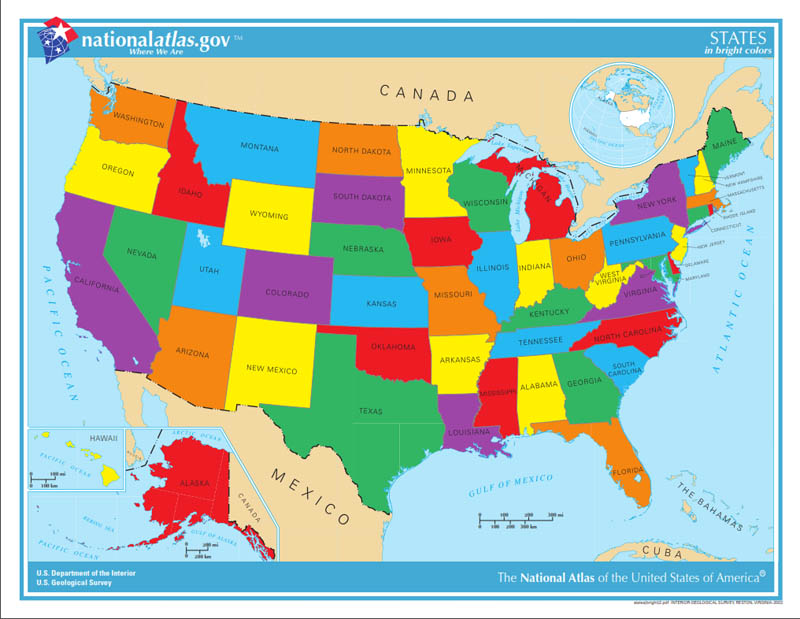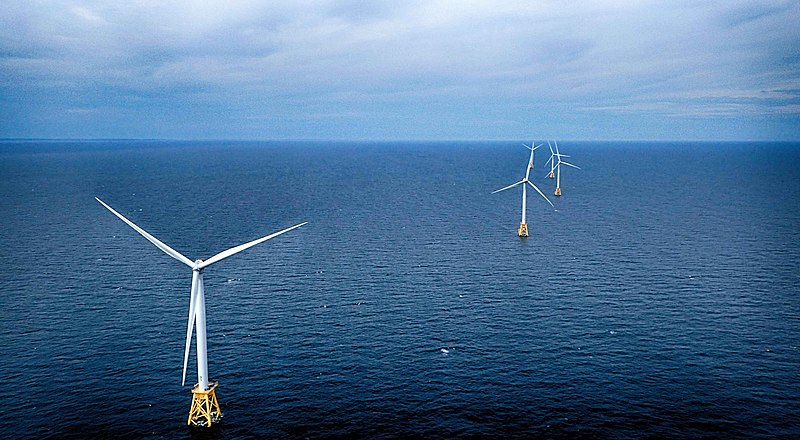Permit Certainty
Revised SPEED Act tries to give certainty to permit holders, and probably fails.
The SPEED Act will be up for a vote in the House of Representatives later this week, and the vote will likely be close. The Act is an effort to do permitting reform for NEPA compliance, in theory to accelerate reviews and provide more certainty about what those reviews cover. I’ve already provided an assessment of many of the provisions of the Act in an earlier blog post – and most of those provisions remain in the Act as it stands. But a key issue for permitt...
CONTINUE READINGFederalism, AI, and the Environment
Trump’s efforts to overturn state laws are part of his effort to consolidate power and suppress opposition.
Trump’s Executive Order last Thursday on AI is a direct attack on state authority. The subject is different, but the thrust of the order is the same as his earlier attacks on state clean energy laws. Both orders call for a federal assault on state laws. Trump knows that states' independent authority places a limit on his efforts to consolidate power and to impose his policies, including his anti-environmental energy dominance agenda. To be sure, the AI order isn't...
CONTINUE READINGCan Bioplastics Be Composted? UCLA Clinic Investigates
See how bioplastic packaging interacts with California’s waste system as UCLA's Environmental Legislation Clinic tours facilities across the state.
A student team from UCLA’s California Environmental Legislation and Policy Clinic has been conducting research for a project on bioplastics through field visits at waste management sites up and down the state, from Sun Valley to Northern California. These clinic field trips have been really fascinating and a little smelly. Clinic student Maddie Lincoln describes the project as an investigation into bioplastics and “whether they are truly helping us and the e...
CONTINUE READINGThe Answers are Blowing in the Wind
A district court overturns the moratorium on offshore wind, deciding two key legal issues along the way.
A week ago, a Massachusetts District Court invalidated the moratorium on permits for offshore wind. The moratorium had been imposed by the Interior Department, giving no reason except that President Trump had ordered the action. The court’s decision is a welcome check on Trump’s irrational vendetta against wind power. It also involves two important, broader issues. The first issue is whether the Administrative Procedure Act (APA) applies when an agency carries...
CONTINUE READINGSCOTUSblog Falls Into the MAGA Orbit
It's not there yet, but danger signs are appearing. Invest in real journalism to stop the bleeding.
Like most law nerds, I often check out SCOTUSblog when I want to see what the Corrupt Six are doing nowadays. But I had not caught one major change that we should all watch out for: it has become a part of the right-wing media ecosystem. A few months ago, it was purchased by The Dispatch, a very conservative (although not necessarily MAGA) site, and is now being run by Sarah Isgur, a long-time Republican operative who clerked for right-wing fire-breather Edith Jones, ...
CONTINUE READINGMaking the Most of Data Centers
Data centers are driving energy demand at unbelievable scale. Regulators should use that to build infrastructure we desperately need.
If you’d asked me three years ago, I would never have guessed energy bills would be a salient political issue in 2025, let alone one that politicians anchor their entire campaign around. But of course, the cost of energy is quite different today than it was a few years ago. Electricity prices have increased faster than (already-high) inflation since 2022, leaving ratepayers on the hook for ever steeper monthly bills. At the same time, legislators are...
CONTINUE READINGYes, It’s That Time of Year Again
If you read Legal Planet, you know why the work we do matters.
Like everyone else, I’m sure you find fundraising appeals annoying. That’s why we only do them twice a year. But there couldn’t be a more important time for the work we do, given the urgency of the climate crisis and the ongoing policy disaster in D.C. Trump's second term has proved to be even more ruinous for the environment expected, with a dedicated effort to slash pollution regulation, suppress clean energy, and glorify fossil fuels. That makes the envir...
CONTINUE READINGTrump is Trying to Make Us Pay More for Gas
The Drain is a weekly roundup of environmental and climate news from Legal Planet.
At a White House photo op last week, surrounded by rich auto executives and congressional Republicans, Trump delivered his latest blow to Americans’ pocketbooks by announcing a policy change that could cost us consumers up to $185 billion when filling up our tanks at the pump. If you’re scratching your head trying to recall this event, you probably read or watched coverage that framed it as Trump gleefully attacking Biden rules that encouraged electric vehicle...
CONTINUE READINGHow California (And Other States) Can Drive Demand for Clean Trucks
CLEE and the Emmett Institute release new report today and will hold Jan. 13 webinar with Energy Commissioner Nancy Skinner keynote.
This post is co-authored by CLEE fellow Marie Grimm. California’s policies to phase out polluting diesel trucks with zero-emission models took a major hit this year from the federal government. In June 2025, Congress voted to overturn federal permission for California’s zero-emission truck mandate (although this vote is now subject to litigation). In July, Congress then voted to terminate many of the tax incentives that lowered zero-emission truck costs. Furthermo...
CONTINUE READINGThoughts on COP30
What have we learned about the future of climate negotiations?
There’s a consensus that the COP30 was disappointing, although EU pressure prevented even more disappointing outcomes. It was just ten years ago that we were celebrating the emergency of the Paris Agreement as a big step forward. We have seen a bending of the curve since then, with the worst climate outcomes seeming increasingly unlikely. WAhat have learned and where do we go from here? The biggest lesson is that shared interest of all countries in taming climate ...
CONTINUE READING












